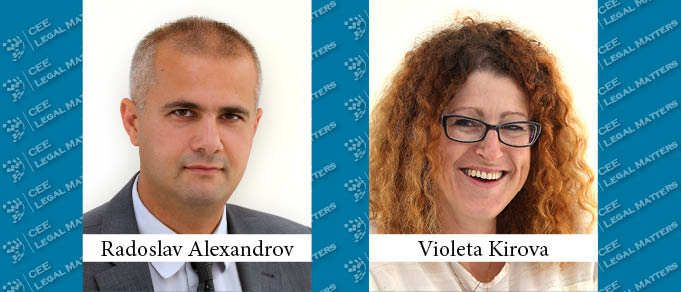In 2012, the Bulgarian Parliament introduced statutory rules regarding the activities of temporary staffing enterprises (TSAs). Before that, their existence and operations were recognized and tolerated in practice, but their activities took place in a legal vacuum.
The 2012 rules tied the hands of businesses rather than effectively regulating the relations between commissioned employees, outsourcing companies, and employers using leased staff. It is not a secret that both outsourcing companies and staff feel they had a lot more business flexibility during the legal vacuum.
Nearly ten years later, businesses are still facing the same or even increased difficulties in implementing some globally popular models in Bulgaria. The most relevant example is the ‘Employer of Record’ (EOR) model.
An EOR is a third-party organization that hires and pays an employee on behalf of another company and takes responsibility for all formal employment tasks. Using an EOR allows companies to engage with overseas workers legally and efficiently, without having to set up a local entity or risk violating local employment laws.
Bulgarian Legislation Does Not Recognize EORs!
The principal rule under Bulgarian law is that the employee must enter a direct employment contract with the company they will actually work for. There are only two exceptions to this rule – the EOR model is not one of them.
The first would be to provide services as TSAs, the next best thing. TSAs hire employees for temporary work and send them to companies, to work under their management and control. The Bulgarian Labor Code regulates temporary employment through a TSA and the Employment Promotion Act regulates TSA registration requirements and procedures. There are certain restrictions regarding the use of the TSA model, however, which also represent fundamental differences to the EOR model. TSAs are subject to registration with the Employment Agency of Bulgaria. The process normally lasts up to two months and the registration certificate is valid for five years (subject to further extensions).
TSAs (unlike EORs) may send employees to a user undertaking for temporary work only, in two cases: either to replace an absent employee or to complete a specific task/project, with a clear start and end. Staff may not be sent to support the ‘usual work’ of the client! The type of work – temporary – requires the conclusion of a fixed-term employment contract with the employee. The contract terminates once the titular employee returns or the specific project is completed.
The number of temporary employees sent by a TSA may not exceed 30% of the client’s own employees. The TSA and the user undertaking need to enter into a written agreement and are severally and jointly liable for the obligations against the employee stemming from the temporary work.
These restrictions mean that a global EOR service provider may operate in Bulgaria, after registering as a TSA and with the above limitations, which significantly alter the classic EOR model.
The second exception would be to provide a business service to the client. There are companies that provide typical EOR services – usually at the cost of employment plus markup – however, they enter a business service contract with their client. The service is not an EOR service, rather the subject matter of the employee’s work. The wording of the business service contract must be carefully drafted to avoid claims of ‘personnel leasing.’ For example, if the employee is a software developer, the subject matter of the business service contract would be ‘the provision of software services.’
Providing such business services does not require licenses/registration and there are no specific requirements for the operation of the providers. In some cases, such a subject matter would be entirely justified: the service provider operates in the same business sector as the end client and creates a dedicated team of professionals working exclusively for that client. In other cases, such structures would not be fully compliant with the law: an HR agency provides the end client with software development or marketing services, through a business service contract – when such services are clearly not in the same business sector where the client operates, nor are they typical for the sector in which the HR agency operates.
Companies providing such services have full liability as an employer against the employees. However, they also bear the risk of authorities claiming Bulgarian Labor Code breaches and imposing administrative sanctions. Even though such risks could be mitigated through well-drafted service contracts, they cannot be fully excluded.
By Radoslav Alexandrov, Partner, and Violeta Kirova, Principal Associate, Boyanov & Co
This Article was originally published in Issue 8.12 of the CEE Legal Matters Magazine. If you would like to receive a hard copy of the magazine, you can subscribe here.
